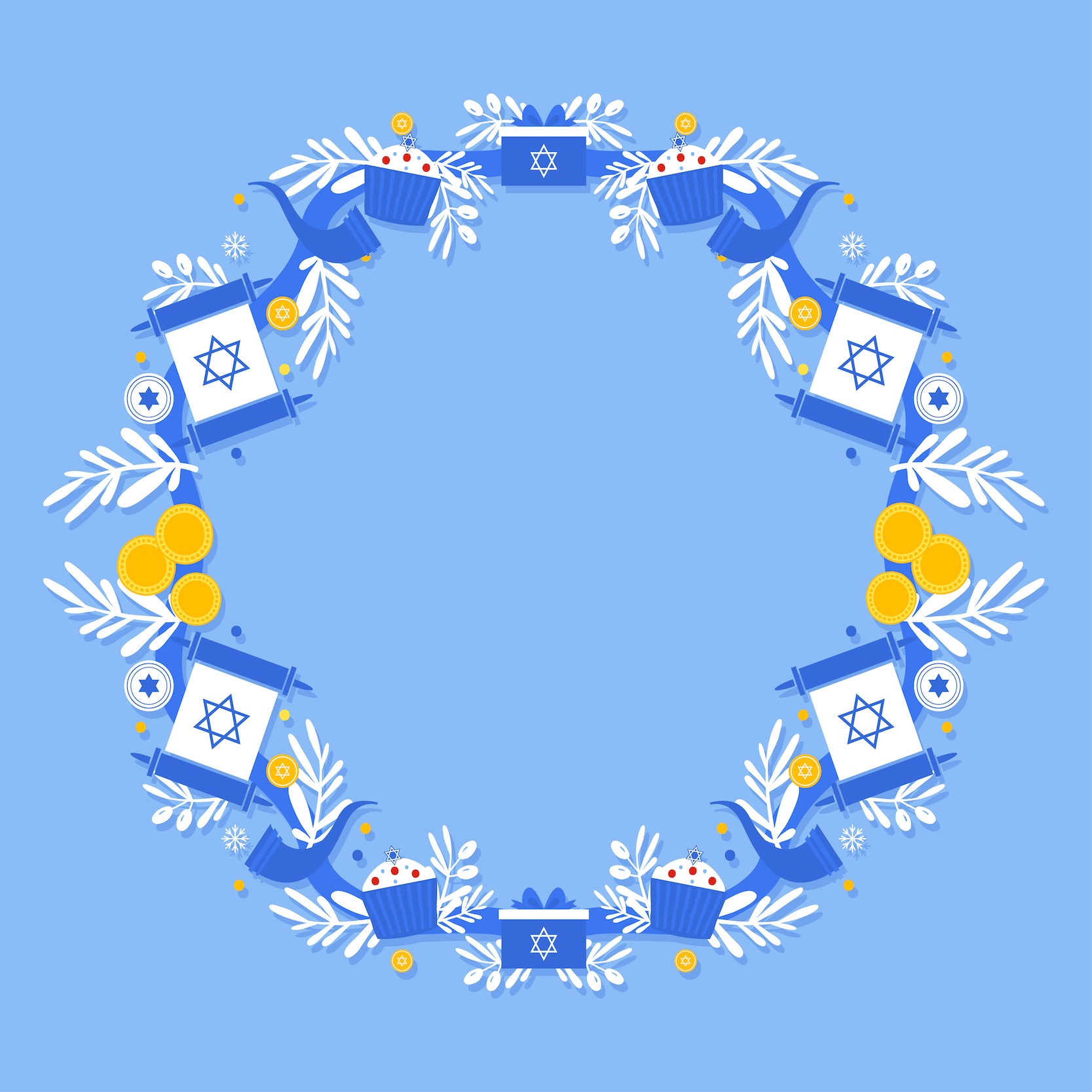Hanukkah
Unlike most of the major Jewish holidays, Chanukah’s origin is not in the Bible, but rather in events that happened later. This is a holiday that lasts eight days and begins on the 25th of the Hebrew month of Kislev (usually in December). There are no completely holy days, so businesses are open as usual.
Chanukah marks a historic event that took place in the Seleucid period, in the 2nd century BCE. A few of the Seleucid kings (the dynasty that followed Alexander the Great, and which was based in Syria) tried to force the Jews in the Land of Israel to adopt certain customs that were against the laws of Judaism. The worst decree was when King Antiochus IV ordered the installation of a statue in the Holy Temple in Jerusalem.
In 167 BCE, the Jews revolted against the Greek Seleucid regime. A few of the leaders of the revolt, the Hasmoneans, or Maccabees, were the sons of Mattathias, the high priest. In 164 BCE, under the leadership of Judah Maccabee, the revolt reached its climax with the liberation of Jerusalem from foreign rule, including the Holy Temple. The events are documented in a few historical sources written at the end of the 2nd century CE, a few decades after the revolt. According to Jewish tradition, the holiday of Chanukah was instituted by Judah Maccabee.
The holiday lasts eight days, commemorating the celebrations marking the purification and rededication of the Holy Temple, and a miracle recorded in the traditions: When the Maccabees looked for holy oil to light the candelabrum in the Temple, they found only one small flask whose seal had not been broken and was therefore still pure. The oil in the flask was enough for only one day, but a miracle occurred and the oil burned for eight days. In addition to the element of heroism marked by this holiday, Chanukah also has a motif of light against darkness, so Chanukah is also called the holiday of Lights.
In modern times, Chanukah has been adopted as a symbol of the Jews’ struggle against their enemies on both the religious and national levels. Today some people emphasize the religious, miraculous side of the holiday, while others focus on the national victory aspect. In any event, this is a holiday full of joy and is a special favourite among children.
Holiday Customs:
Candle lighting - Throughout the eight days of Chanukah candles are lit in a Chanukiah, a candelabrum with eight branches in a row and an extra candle holder, called the shamash, from which the other candles are lit. On each night of Chanukah, an additional candle is lit, starting with one on the first night, two on the second, etc. The shamash is always lit, too, such that in practice two candles are lit on the first night, three on the second, etc.
The Chanukiah is placed on the window sill or in some other visible place, and it is forbidden to use the light for any purpose. There is a custom to light the Chanukiah with olive oil, although most people today use colourful wax candles. A short blessing is recited over the lighting of the candles, a ceremony in which children are included, and which is followed by the singing of Chanukah songs.
Jelly donuts (sufganiyot) and potato fritters - Another Chanukah custom is the eating of special foods, mainly those fried in oil, such as donuts and fritters.
Spinning tops - children play with four-sided spinning tops, marked with the Hebrew initials of a Great Miracle Happened Here. It is also customary to give children “Chanukah gelt” money for buying candies or toys.
.jpg?resize=400x0)



